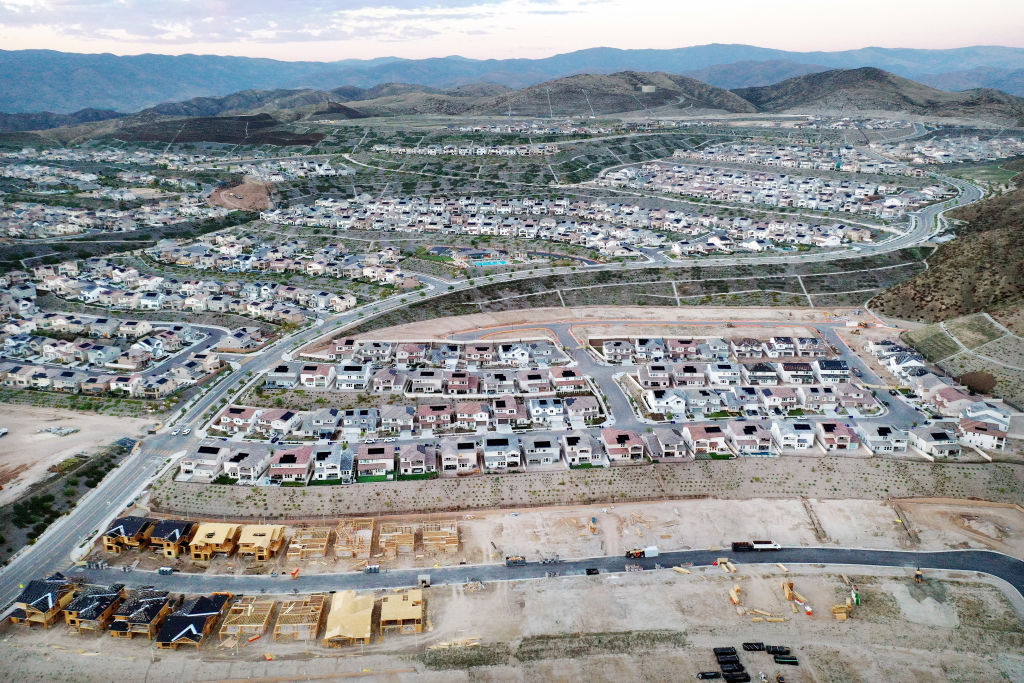Read more about the efforts being made by towns nationwide to build more affordable homes in Stateline.
New state legislation that goes into effect this month aims to address the country’s persistent housing crisis in a number of ways, including shielding struggling residents from eviction, increasing housing options, and accelerating the building process.
This year’s legislative sessions will see similar bills.
Measures to prevent landlord retribution in Illinois and Minnesota, to seal eviction records in Idaho, and to expedite the construction of backyard additional dwelling units, or ADUs, in California are among the new legislation.
By easing zoning regulations to permit new kinds of development, other states concentrated on the obstacles that prevented the construction of homes and placed the responsibility for providing affordable housing on the cities.
According to surveys, the majority of Americans, regardless of their political beliefs, communities, or backgrounds, want to see more housing constructed. Experts think there is an urgent demand. The present housing shortfall is estimated by Freddie Mac to be around 3.7 million homes. The National Low Income Housing Coalition estimates that there is a scarcity of about 7 million rental properties for tenants with extremely low incomes.
According to economist Salim Furth, a senior research fellow and director of the urbanity project at the Mercatus Center at George Mason University, “I anticipate that it will be a banner year for housing legislation, as many state legislators and governors ran for the first time on a platform that included addressing housing cost inflation.” They must now deliver.
In February, the Boise organization Jesse Tree will offer a free seminar on tenants’ rights at the library.
Furth, who is keeping tabs on 135 housing-related measures this year, stated that he anticipates the return of last year’s top concerns, which included simplifying the permitting process, legalizing residential building in commercial zones, and making it easier to construct an ADU.
With over 60 housing-related regulations passed last year, California may have done more than any other state. In a state where there is an estimated 2.5 million house shortage, most urge increased growth.
California’s new legislation includes provisions that ease the construction of additional housing in existing neighborhoods, remove parking requirements for some residential developments close to transit stations, and deprive local governments of the authority to halt certain affordable housing in-fill projects unless they are necessary for public health or safety.
In order to promote additional ADU building, the state also passed a number of laws. The initiatives, among other things, promote the construction of ADUs in coastal areas, provide flexibility for ADUs on multiple lots, and provide upfront information on ADU laws.
Bipartisan support for accessory housing units has grown in state legislatures. Gretchen Baldau of the conservative American Legislative Exchange Council said she sees momentum for legislation in Delaware and Georgia that might permit ADUs and welcomed recent laws in Arizona and Nebraska that permit ADUs and modular homes on residential land.
Baldau, senior director of the commerce, insurance, and economic development task force at ALEC, the think tank, told Stateline that politicians find housing reform to be a challenging issue because it actually touches close to home.
In addition to other model laws that would do away with discretionary review and approvals and restrict the majority of third-party legal challenges to authorized developments, she said ALEC has provided legislators with model legislation that would reduce permitting and construction barriers to building ADUs.
GET THE HEADLINES FOR THE MORNING.
Tenant-landlord relationships are subject to a number of new regulations.
For instance, new legislation in Minnesota and Illinois forbids landlords from taking adverse action against renters who report code violations, request repairs, or participate in tenant organizing—the latter of which is particularly strong in Minnesota.
Tenants who contact for emergency assistance or who report problems to the media are likewise protected by Minnesota law.
If the entire case was dismissed, there isn’t an appeal underway, or three years have gone since the filing date, eviction actions filed in Idaho on or after January 1, 2025, are automatically protected from public exposure.
According to a Stateline investigation, Idaho was one of at least three states that passed legislation sealing eviction records last year, along with Maryland and Massachusetts. Although landlords contend that eviction data is important when making lease decisions, housing advocates have praised the laws, claiming they will stop a person’s eviction history from being exploited against them.
As of January 8, 26 state legislatures have resumed their sessions, and housing bills are beginning to appear one by one.
A number of bills have been introduced in California, a housing policy bellwether, that would prohibit the use of algorithmic devices to determine rents, prohibit local agencies from imposing parking requirements on ADUs, and establish a new state authority to construct and maintain social housing—a public community housing movement that is gaining traction in some advocacy circles.
Two Republican lawmakers in Texas have introduced proposals that would supersede municipal regulations that limit or forbid additional housing units.
Additionally, Democrats in Maryland say they intend to present legislation to expedite the licensing of new housing developments. This will be in addition to ideas for tenant protection, such as a bill requiring landlords to have a valid reason for evicting a renter.
Our ability to supply enough housing will determine affordability, homelessness, and economic mobility.
Stanley Chang, a Democratic state senator from Hawaii
Red states would emphasize growing supply, while blue governments will prioritize rent control, according to Tim Rosenberger, a legal policy scholar at the conservative Manhattan Institute.
Expect conservative states to make sensible efforts to boost supply while blue states seek for ways to try to lower prices because rates are high and inventory is priced much above what most Americans can afford, he added. Lawmakers must oppose price, rent, and regulation controls. They ought to use the chance to free up construction and cut back on rules and red tape.
Legislators in Oregon are debating a bill that would mandate indoor cooling in apartments with ten or more units and restrict rent in mobile home parks. According to the National Apartment Association, other states may also think about implementing rent stabilization policies.
Some state legislators have made housing their top priority for the upcoming sessions.
Changing the rate at which the state spends its rental housing revolving fund is one of the objectives of Democratic state senator Stanley Chang when he returns to Hawaii’s parliamentary floor on January 15. Chang stated that the state may not be able to spend the approximately $519 million it has in the fund until 2038 under the existing arrangement.
“For years, reforming housing finance has been our top priority,” he stated. This program is the main source of housing production in the state of Hawaii, accounting for more than half of all new house development. We could get ten structures for the price of one if we make certain changes to this program.
However, Chang noted that the scope of the affordable housing issue is too complicated to be reduced to a single problem or set of fixes.
Housing is the cornerstone of all problems, not just one. Our ability to supply enough housing will determine affordability, homelessness, and economic mobility. Chang told Stateline that it’s time to acknowledge this as a major priority and cease treating it as a side issue. This issue can be resolved.
Like the Idaho Capital Sun, Stateline is a member of States Newsroom, a 501c(3) public charity news network backed by grants and a coalition of donors. Editorial independence is upheld by Stateline. For inquiries, send an email to [email protected] to reach Editor Scott S. Greenberger.
OUR WORK IS MADE POSSIBLE BY YOU.



